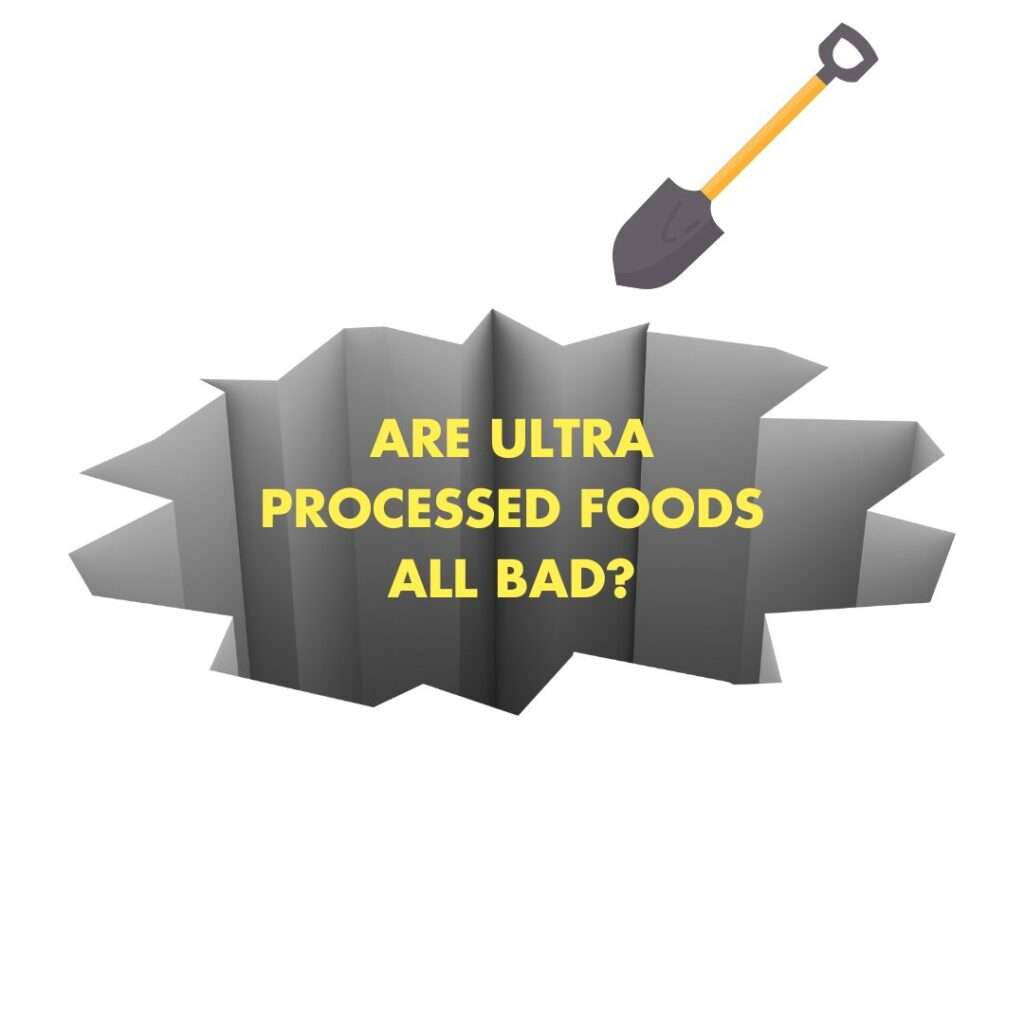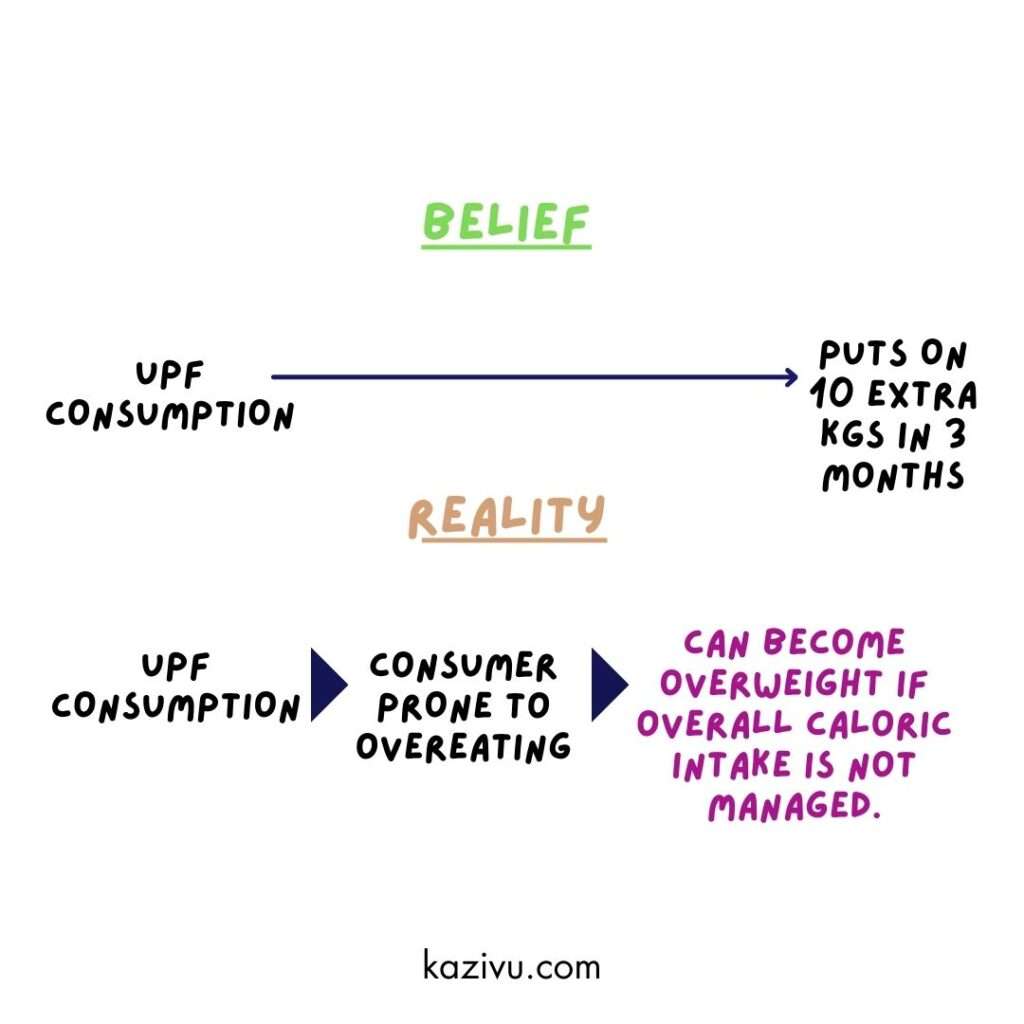For those unfamiliar with the new, much talked about Sapiens study, here are the main findings:
1-Ultra Processed Foods (UPFs) are 3 times more likely to result in poor mental health.
2-While the effects of UPFs are the same on everybody, young people are the biggest consumers of UPFs.
3-UPF consumption shows links to depression.
In short, the message that the study is sending out to all parents of teens seems to be:
DO NOT FEED YOUR TEEN ULTRA PROCESSED FOODS. ULTRA PROCESSED FOODS ARE TERRIBLE FOR YOUR TEEN’S HEALTH AND WELLBEING. PLEASE KEEP YOUR TEEN AWAY FROM ULTRA PROCESSED FOODS. SAY NO TO ULTRA PROCESSED FOODS.
The first question that is coming to my mind – Is this true?
The second question that is worth asking – If yes, to what extent?
And if there is space for a third question – Can some processed and ultraprocessed foods, contrary to what everybody is declaring nowadays, be at least sometimes good for your teen?
This is the pit we are going to go digging in today’s post. Ready?

I. Where we go wrong about UPFs
Question: What is an obese teen’s diet likely to primarily consist of?
[Option A] Ultraprocessed foods
[Option B] Home cooked meals
You may have picked A. You are probably correct. There is evidence to show that a UPF-heavy diet makes you prone to obesity.
But here’s where we go wrong – We often think that processing the food is the problem. This response, while partially correct, lacks nuance.
Processed and ultraprocessed foods can be unhealthy because they tend to make us overeat.
Now that is a very different issue! Certainly different from what the general public says about these type of foods.

This distinction is important and I’ll tell you why in a bit, but first let us talk about why ultraprocessed foods make us susceptible to overeating.
II. Why do UPFs make us overeat, and why that is a problem
Nobody really knows for sure. If somebody tells you they do and this is before Dec 2023, they are bluffing.
Having said that, scientists have a few hypotheses on what could be behind the almost addictive nature of UPFs.
1. Mouthfeel
It is very difficult to achieve the same level of mouthfeel of a hot, crispy potato chip from an ordinary home cooked meal of rice and vegetables. Same goes for mashed potatoes and boiled potatoes. Mashed potatoes are, without a doubt, so much easier to overeat than boiled potatoes.
Most ultraprocessed foods have extraordinary mouthfeel which makes us oblivious to how much of it we consume at a given time, especially if we are multitasking which our teens inevitably are doing today. Eating chips or chicken nuggets while watching a show can quickly become an activity that lasts as long as the show itself.
2. Easier to chew
Processed foods are easier to chew. I already spoke about mashed potatoes but there are many other examples – flavoured yoghurt, cheese, sausage rolls, ham, cakes, biscuits.
When food is easier to chew, we eat faster. You can test this yourself. Compare the time that your teen takes to finish a packet of chips to the time they take to eat a bowl of boiled beans.
How does speed affect the overall eating process?
There are neurons in our gut that signal to our brain when we have had enough food to eat at a given time. When our brain receives this message, we feel “full” and stop eating.
Now when we gobble up our food quickly (which, like we just discussed, happens a lot with ultraprocessed foods), the neurons in our intestines don’t get enough time to message our brain on time to say, “Hey, I have my gut full at the moment. Can you stop this incoming food for a bit?”. So by the time our brain gets and transmits the message to ask us to stop eating, we are already on our third packet of chips.
3. Palatability
Most processed foods are high in salt or sugar or both. This makes them really tasty and delicious. Nobody needs to force a teen to have another piece of cake but to convince them to have a second helping of a green, leafy salad is not as easy.
The reason why many ultraprocessed foods contain high amounts of salt and sugar is because these help with longer shelf lives. They can also be important ingredients for preparation e.g. salt in bread.
While it is natural to have more of a tasty food item, this also means that if we are not careful, it becomes easy to overeat them.
III. Why overeating UPFs is extra problematic
Because ultraprocessed foods have a high calorific density to start with, overeating means many more times the calories that you would have consumed from overeating regular home cooked or freshly prepared meals (which are anyway hard to overeat in the first place).
Let us understand this using an example:
A 100-gram serving of fried potato chips contains 545 calories, while the same size serving of a plain baked potato contains only 95 calories (source).
2 packets of potato chips = 1090 calories which is close to half the daily calorific requirements for most teens.
2 baked potatoes on the other hand still make up less than 200 calories which leaves plenty of calorific space for other more balanced meals in the day.
All this to say that given the high calorific density of most UPFs, overeating can quickly lead to a big pile up of calories, often more than what our body needs which can lead to health issues such as energy toxicity, obesity, diabetes, nutritional deficiencies.
What does this mean? Should we keep teens away from all UPFs ever?
IV. Are all UPFs bad and to be avoided?
The jury is still out.
All UPFs don’t seem bad for your teen. Some of them can even be healthy for your teen. Like bread. Bread can be an important source of fibre especially for teens who dislike eating fruits and veggies. By and large though, you may benefit from encouraging your teen to avoid UPFs on a daily basis for the reasons we discussed in Section II.
A second often neglected use case of UPFs for teens is how they can actually help meet your teen’s calorific needs. Teenage is a period of rapid growth which means that teenagers have high calorific requirements which in some cases can be difficult to meet from only home cooked meals. Processed foods in this case can be an aid but again you might want to be selective of what kind of processed foods. Always check the label of ingredients on the packet and see if they help or don’t help your teen’s overall nutrition requirements.
A recommended way to manage your teen’s calorific intake (and even yours for that matter) is to track the macros. What this means is that it might be more helpful to ensure that your teen has the right amount of all required macro nutrients such as proteins, sugar, fat, carbohydrates etc. in their diet than overemphasising on micronutrient intake e.g. eliminating all sugar from your teen’s diet. Here is a video resource if you’d like to understand this more.
V. UPFs and Teen Wellbeing
What we eat affects what we feel.
I will not get into the exact physiological mechanisms that facilitate this process here (might write a separate article in the future) but for those interested, check this video out.
What I will cover as part of this post is 3 potential links between UPF consumption and your teen’s wellbeing.
[1] Poor Cognitive Attention and Focus
UPFs make your teen prone to overeating which in turn affects their ability to focus. We are all familiar with the feeling of sleepiness that takes over after we have had a full meal.
When you constantly feel distracted or incapable of doing any focused studying, you don’t feel good about it. The tendency to procrastinate increases and feelings of wellbeing decrease.
[2] Obesity and Low Self Esteem
Having a UPF-heavy diet means that there is a high chance that your teen is overeating and therefore overweight.
Obese teens tend to have lower levels of self esteem which can influence their self confidence, ability to socialise and possibly even achievement levels.
[3] Links to Depression
Excessive UPF consumption shows links to depression. I do want to caveat this by saying that mental health issues are often bidirectional and influenced significantly by genetic predispositions. Exercise and life events can also play a role. Having said that, evidence from studies done so far seems to suggest that consuming UPFs regularly is likely to result in poorer mental health.
VI. How to help your teen manage their UPF consumption?
Most teens love their fries and burgers. Banning all processed foods from their diet might make their relationship with food ungratifying. Some teens may even find clandestine ways to eat junk without their parents’ knowledge.
A route that you might want to explore could be to help your teen make more mindful dietary choices. For example, encouraging them to pay attention to how they feel when they eat a certain kind of food and how their stomach feels the next day. Creating a culture of sharing food with others can be another way to avoid overeating. A third way is to limit the supply of UPFs at home. If your teen does not have an ample supply of UPFs readily available, they may find it easier to resist them.
Like we discussed in Section III, you may also benefit from focusing on macro consumption patterns. Making sure that your teen gets enough fibre and proteins and carbs is important for their healthy brain and body development.
Note: It is critical to supplement nutrition with daily sunlight, regular exercise and good quality sleep. These are foundational for good health and wellbeing.
VI. A word from Kazivu
We want the best for our children and this includes their diet too. There is a lot of noise and a deluge of information on processed and ultraprocessed foods which can be confusing to navigate as a parent. Remember to read every piece of health news with the necessary caveats. Always take the effort to dig deeper into what an article says.
As for ultra processed foods, it looks like making UPFs a predominant part of your teen’s diet can distort their nutrition requirements and affect their wellbeing. If this is a concern that you are currently struggling with and you are unsure where to begin, you could start by collecting sufficient data. Tracking both the quality and quantity of what your teen eats over a period of time can help you decide what your first best step could be.

Absolutely brilliantly written, Mam. Appreciate the service you are giving through such coaching and articles!
Acknowledge and thank you for the same!
Thanks so much! So glad to hear this.